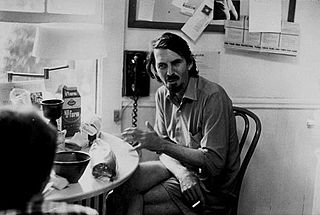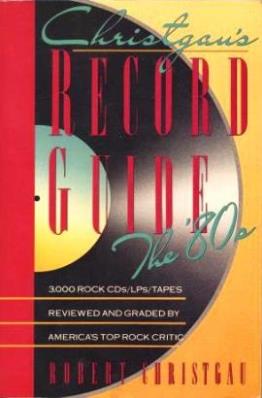Related Research Articles

A concept album is an album whose tracks hold a larger purpose or meaning collectively than they do individually. This is typically achieved through a single central narrative or theme, which can be instrumental, compositional, or lyrical. Sometimes the term is applied to albums considered to be of "uniform excellence" rather than an LP with an explicit musical or lyrical motif. There is no consensus among music critics as to the specific criteria for what a "concept album" is.

Dada or Dadaism was an anti-establishment art movement that developed in 1915 in the context of the Great War and the earlier anti-art movement. Early centers for dadaism included Zürich and Berlin. Within a few years, the movement had spread to New York City and a variety of artistic centers in Europe and Asia.
Heavy metal is a genre of rock music that developed in the late 1960s and early 1970s, largely in the United Kingdom and United States. With roots in blues rock, psychedelic rock and acid rock, heavy metal bands developed a thick, monumental sound characterized by distorted guitars, extended guitar solos, emphatic beats and loudness.

In the arts and literature, the term avant-garde identifies an experimental genre or work of art, and the artist who created it, which usually is aesthetically innovative, whilst initially being ideologically unacceptable to the artistic establishment of the time. The military metaphor of an advance guard identifies the artists and writers whose innovations in style, form, and subject-matter challenge the artistic and aesthetic validity of the established forms of art and the literary traditions of their time; thus, the artists who created the anti-novel and Surrealism were ahead of their times.
Noise music is a genre of music that is characterised by the expressive use of noise. This type of music tends to challenge the distinction that is made in conventional musical practices between musical and non-musical sound. Noise music includes a wide range of musical styles and sound-based creative practices that feature noise as a primary aspect.

...And Justice for All is the fourth studio album by American heavy metal band Metallica, released on August 25, 1988, by Elektra Records. It was Metallica's first full length studio (LP) album to feature bassist Jason Newsted, following the death of their previous bassist Cliff Burton in 1986. Burton received posthumous co-writing credit on "To Live Is to Die" as Newsted followed bass lines Burton had recorded prior to his death.

Robert White Creeley was an American poet and author of more than 60 books. He is associated with the Black Mountain poets, although his verse aesthetic diverged from that school. Creeley was close with Charles Olson, Robert Duncan, Allen Ginsberg, John Wieners and Ed Dorn.

Spectres is the fifth studio album by American rock band Blue Öyster Cult, released in November 1977 by Columbia Records. The album features one of the band's biggest hits, concert staple "Godzilla," and was certified gold by the RIAA on January 19, 1978.

Robert Thomas Christgau is an American music journalist and essayist. Among the most well-known and influential music critics, he began his career in the late 1960s as one of the earliest professional rock critics and later became an early proponent of musical movements such as hip hop, riot grrrl, and the import of African popular music in the West. He was the chief music critic and senior editor for The Village Voice for 37 years, during which time he created and oversaw the annual Pazz & Jop critics poll. He has also covered popular music for Esquire, Creem, Newsday, Playboy, Rolling Stone, Billboard, NPR, Blender, and MSN Music; he was a visiting arts teacher at New York University. CNN senior writer Jamie Allen has called Christgau "the E. F. Hutton of the music world—when he talks, people listen."

Fantômas is an American heavy metal supergroup formed in 1998 in California. It features vocalist Mike Patton, drummer Dave Lombardo (ex-Slayer), guitarist Buzz Osborne (Melvins) and bassist Trevor Dunn. The band is named after Fantômas, a supervillain featured in a series of crime novels popular in France before World War I and in film, most notably in the '60s French movie series.
Transgressive art is art that aims to outrage or cause a reaction from the observer. The term transgressive was first used in this sense by American filmmaker Nick Zedd and his Cinema of Transgression in 1985. Zedd used it to describe his legacy with underground film-makers like Paul Morrissey, John Waters, and Kenneth Anger, and the relationship they shared with Zedd and his New York City peers in the early 1980s.

Theodore Edwin White is an American science fiction writer, editor and fan, as well as a music critic. He writes and edits as Ted White. In addition to books and stories written under his own name, he has also co-authored novels with Dave van Arnam as Ron Archer, and with Terry Carr as Norman Edwards. He won a Hugo Award in 1968.

Rock and Roll Over is the fifth studio album by American rock band Kiss, released on November 11, 1976, by Casablanca Records. It was recorded at the Star Theatre in Nanuet, New York. The album contains the songs "Hard Luck Woman" and "Calling Dr. Love", which became hit singles in the United States.

Arthur Cravan was a Swiss writer, poet, artist and boxer. He was the second son of Otho Holland Lloyd and Hélène Clara St. Clair. His brother Otho Lloyd was a painter and photographer married to the Russian émigré artist Olga Sacharoff. His father's sister, Constance Mary Lloyd, was married to Irish poet Oscar Wilde. He changed his name to Cravan in 1912 in honour of his fiancée Renée Bouchet, who was born in the small village of Cravans in the department of Charente-Maritime in western France.
Martin Popoff is a Canadian music journalist, critic and author. He is mainly known for writing about heavy metal music. The senior editor and co-founder of Brave Words & Bloody Knuckles, he has written over twenty books that both critically evaluate heavy metal and document its history. He has been called "heavy metal's most widely recognized journalist" by his publisher.
Eric Robertson is a British academic, Professor of Modern French Literary and Visual Culture at Royal Holloway, University of London.

Christgau's Record Guide: Rock Albums of the Seventies is a music reference book by American music journalist and essayist Robert Christgau. It was first published in October 1981 by Ticknor & Fields. The book compiles approximately 3,000 of Christgau's capsule album reviews, most of which were originally written for his "Consumer Guide" column in The Village Voice throughout the 1970s. The entries feature annotated details about each record's release and cover a variety of genres related to rock music.
Lorene Zarou-Zouzounis is a Palestinian-American writer and poet. Zarou-Zouzounis writes poetry for all ages, prose, historical fiction for children & adults, short stories and science fiction. She obtained her associate of arts degree from City College of San Francisco, and continued her studies at the renowned Creative Writing Department at San Francisco State University. She is described as being influenced by her heritage and has frequently written on subjects relating to the Middle East.

Christgau's Record Guide: The '80s is a music reference book by American music journalist and essayist Robert Christgau. A follow-up to Christgau's Record Guide: Rock Albums of the Seventies (1981), it was published in October 1990 by Pantheon Books.
Three Rooms Press is a New York City-based small press. It was founded in 1993 by Kat Georges and Peter Carlaftes with a focus on poetry, but the press now publishes mainly fiction, memoir, and art. Three Rooms Press's name was inspired by one of the themes in Harold Pinter's play The Homecoming. The press also manages an annual international dada art and poetry journal called Maintenant, which was featured by the Brussels Poetry Fest in 2016 and 2017. Issues of Maintenant have been featured and sold in museums such as the Museum of Modern Art in New York City and the BelVUE Museum in Brussels. Three Rooms Press books are distributed by PGW / Ingram.
References
- ↑ admin (June 6, 2013). "From the Archives: Robert Duncan (2001)". RockCritics.com. Retrieved September 17, 2019.
- ↑ Ducan, Robert (1984). The Noise: Notes from a Rock 'N' Roll Era. Boston, Massachusetts: Ticknor & Fields. pp. 36–37. ISBN 978-0899193267.
- ↑ Walser, Robert (1993). ""Nasty, Brutish, and Short?" Rock Critics and Academics Evaluate Metal". Running With the Devil: Power, Gender, and Madness in Heavy Metal Music. Middletown, Connecticut: Wesleyan University Press. p. 20. ISBN 9780819562609.
- ↑ Weinstein, Deena (2000). Heavy Metal: The Music and its Culture. Cambridge, Massachusetts: Da Capo Press. p. 1. ISBN 9780306809705.
- ↑ "MAINTENANT 13: A Journal of Contemporary Dada Writing and Art". New York City: Three Rooms Press. November 29, 2018. Retrieved September 17, 2019.
- ↑ "Roni Hoffman". Roni Hoffman. Retrieved September 17, 2019.